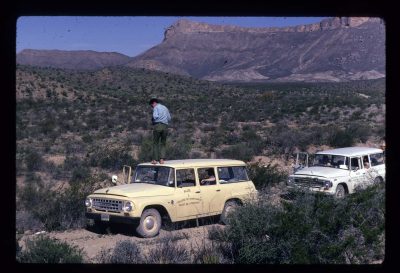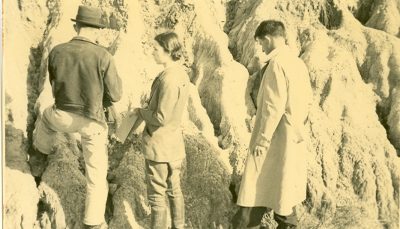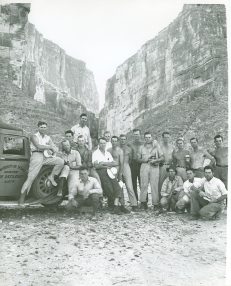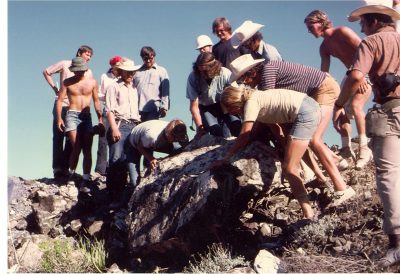A Century of Field Camp
December 5, 2018
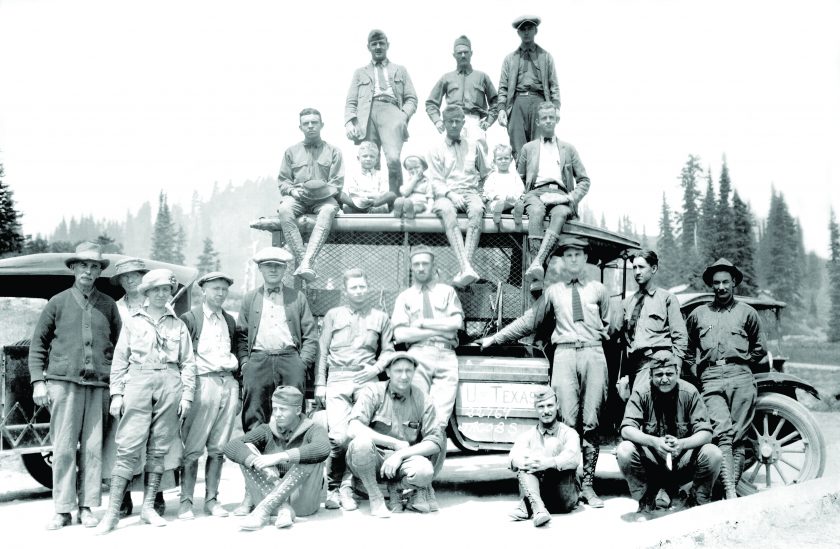 The UT Geology Department embarked on its first field camp more than 100 years ago. A
The UT Geology Department embarked on its first field camp more than 100 years ago. A
lot has changed since Professor Hal Bybee organized that first camp in 1917 — fashion, transportation, locales and demographics to name a few. But the core mission of this right-of-
passage has stayed the same: learn how to think like a geoscientist by witnessing and interpreting geology in the field.
What started as trips to geological formations around Texas has since grown into three distinct field offerings. GEO 660 takes students on a six-week trip to classic geological formations across the United States. Marine Geology & Geophysics (MG&G) brings geophysics students aboard research vessels in the Gulf of Mexico to acquire and interpret seismic data and sediment samples. And the Hydrogeology Field Course teaches students the fundamentals of hydrogeology and water sampling research at Austin’s Hornsby Bend, the streams of the Valles Caldera of New Mexico, and as of 2018, a hydrology field site near Dripping Springs donated by Les and Dianne White.
“I early learned that
|
“Field camp is my favorite
|
To mark more than a century of shaping young geoscientists through field camp, we’re asking the Jackson School community to share their own memories of field camp. If you took part in a Jackson School field camp, no matter the year, we would love to hear from you. Please visit www.jsg.utexas.edu/field to upload stories and photos. You can also email Georgia Sanders at gsanders@jsg.utexas.edu or send us a letter at 2305 Speedway, Stop C1160, Austin,
TX 78712.
We are elated to have passed the century milestone, and to have expanded our field course
offerings as other geosciences programs around the country have cut back. Geosciences is at
its core a field science. With your continued support, we will keep introducing generations of geoscientists to come to the fundamental skills and experiences that can only be gained through education in the field.

